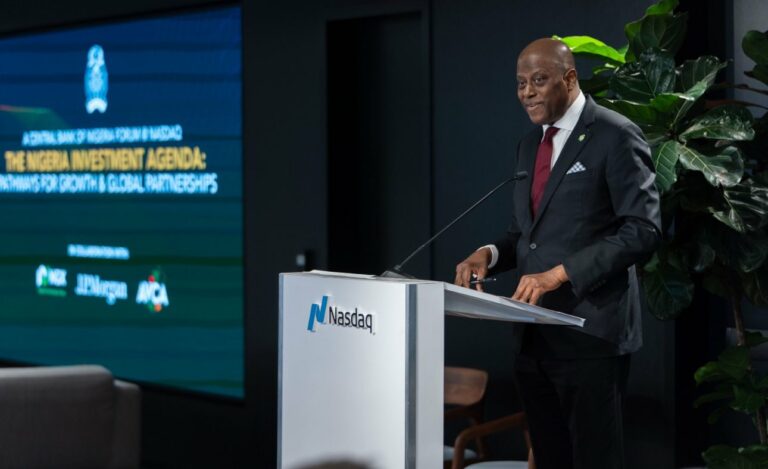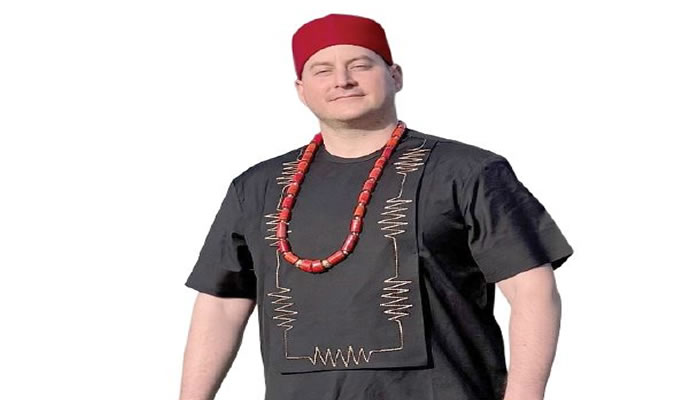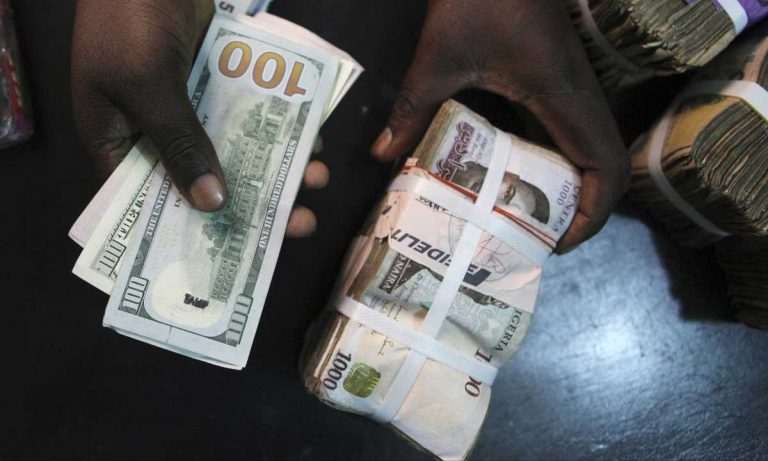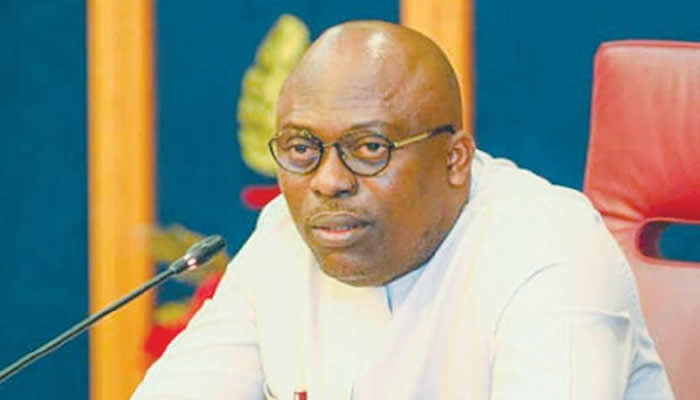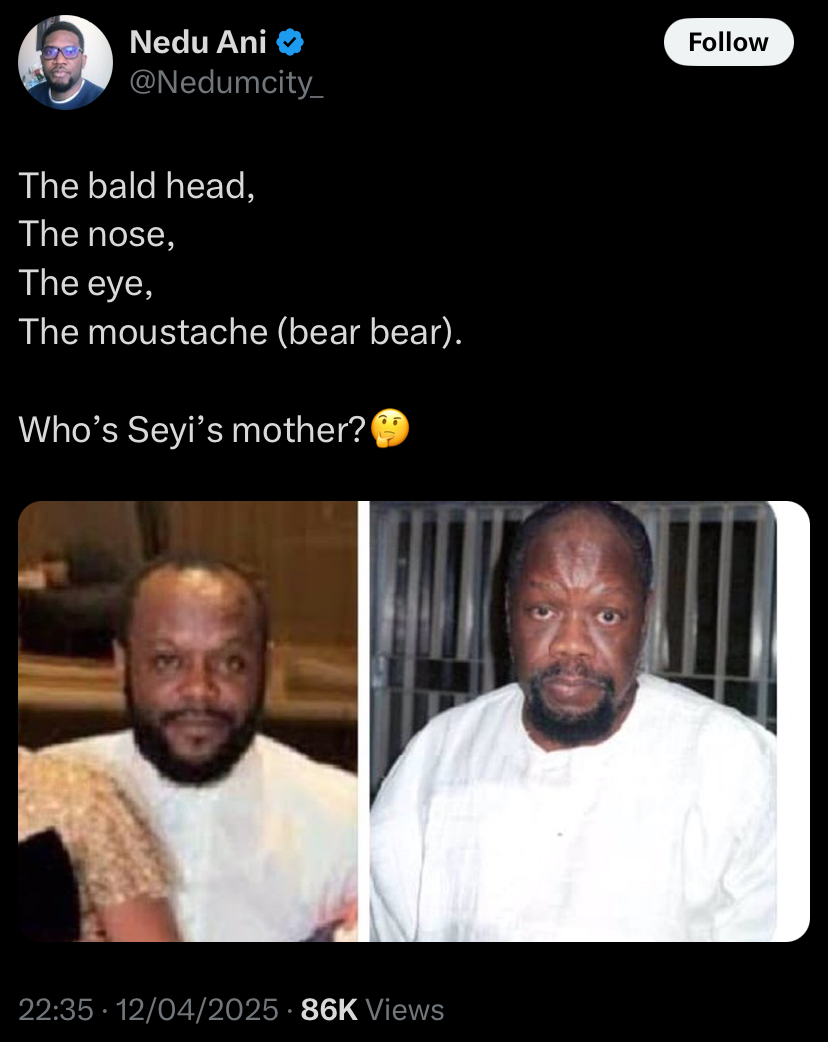More details have emerged on how promoters of the fraudulent Ponzi scheme, Crypto Bridge Exchange, aka CBEX, convinced hundreds of thousands of investors to put money into the trading platform.
CBEX, a digital investment platform, offered investors 100 per cent profit after 30 days of purported AI trading.
No fewer than 600,000 Nigerians reportedly invested in the scheme and lost N1.3tn after it collapsed on Monday.
Findings by Saturday PUNCH revealed that the promoters of the platform operated under a company registered as ST Technologies International Limited.
ST Technologies was registered with the Corporate Affairs Commission on September 25, 2024, and the Economic and Financial Crimes Commission’s Special Control Unit Against Money Laundering on January 16, 2025.
Copies of the certificates were obtained by our correspondents.
One of the documents was titled, ‘Certificate of Increase in Issued Share Capital of ST Technologies International Limited Company Registration No. 7955973.’
It read, “The Registrar-General of the Corporate Affairs Commission hereby certifies that pursuant to the resolution and notice of increase in share capital dated 4th December 2024, and presented for filing on 5th December 2024, in respect of the above-named company, the increase in share capital from N1,000,000 to N201,000,000—by the creation of 200,000,000 ordinary shares of N1 each and preference shares of N0 each—has been registered with the commission. Given under my hand at Abuja this 17th day of December 2024.”
Similarly, the EFCC’s certificate of January 16, 2025, stated, “ST Technologies International Limited has been duly registered in accordance with the provisions of Section 17(2)(a) of the Money Laundering (Prevention and Prohibition) Act 2022, and any other applicable law or regulation.”
Some of the victims, who spoke to Saturday PUNCH, said the registration certificates gave them confidence that the scheme was authentic.
“They were also doing charity, hospital outreach, paying hospital bills… it was a coordinated approach,” an investor who asked not to be identified said.
The video was recorded on February 10, 2025 during the inauguration of the firm’s Abuja office attended by a crowd.
The Telegram groups
Findings by Saturday PUNCH showed that promoters of the scheme maintained different Telegram groups for users.
Our correspondents had access to three.
The first group, ‘ST Customer Support,’ had 144,460 members.
The other group, ‘Newcomer Advance Group,’ had 58,186, while the third platform, ‘ST Signal Group IV,’ had 87,864 members as of the first day of the crash.
However, all the Telegram accounts were locked following the crash of the platform on Monday.
Saturday PUNCH observed that the administrators of the groups used mostly UK mobile numbers with animated pictures for their profiles. They did not use their real photos.
Two of the administrators’ usernames were @Mentor_LaurafxWilsonn, @Maiy_Aditiii).
As of the time of filing this report, members of the ST Signal Group IV had reduced to 83,792, while those of ST Customer Support and Newcomer Advance Group had reduced to 137,085 and 54,809, respectively.
Also, the accounts had been flagged ‘Scam’ by Telegram following reports of fraud from the victims.
EFCC begins de-registration
The EFCC’s Head of Media and Publicity, Dele Oyewale, confirmed that the Ponzi scheme was registered under the name of ST Technologies.
He noted that the company listed consultancy services as its line of business, noting that the commission had begun the process to revoke its registration after discovering that it deviated from its stated operations.
“It wasn’t registered as CBEX. It was registered as ST Technologies. What they offered as a service was consultancy. When the Special Control Unit Against Money Laundering discovered that the entity had veered off its registered line of business, modalities were initiated to withdraw that registration,” Oyewale said.
Asked whether the commission was closing in on the main perpetrators, he responded, “Work is ongoing. Our international partners have also begun investigations. I can assure you we will get to the root of the matter.”
The Securities and Exchange Commission also confirmed that “CBEX operates under the corporate identity of ST Technologies International Ltd, Smart Treasure/Super Technology.”
In a statement, the SEC said, “Preliminary investigations carried out by the commission have revealed that CBEX engaged in promotional activities to create a false perception of legitimacy, in order to entice unsuspecting members of the public into investing monies, with the promise of implausibly high guaranteed returns within a short timeframe. CBEX has failed to honour withdrawal requests from their subscribers and abruptly closed their physical offices, amid mounting complaints.”
CBEX marketing strategies
Sources who spoke to Saturday PUNCH said promoters of the trading platform recruited some influencers and radio presenters as brand ambassadors.
The team also established offices in some major parts of the country, including Abuja, Lagos, and Ibadan, and embarked on marketing via radio and social media platforms.
Some of the radio stations that aired the Ponzi scheme programme included Orisun FM, Ile-Ife, Osun State, and three other radio stations in Ibadan, Oyo State.
The Nigerian investors also embarked on marketing in schools and churches and held giveaways.
These marketing strategies enabled the trading platform representatives to convince even the poor and illiterate individuals to invest in the scheme.
In a five-minute programme promoting CBEX on Orisun FM, one of the officials claimed that the platform could lift many Nigerians out of poverty.
“This scheme is for everyone. Even those selling herbal mixtures, those selling on the roadside, and the petty traders can invest with us. Those selling pepper and those selling vegetables in the market can also join us,” he said.
“We want everyone to join us because our intention is to make life easier for Nigerian people. We want to take them from suffering and hardships,” another stated on the programme.
Acting on the backlash from netizens, the OSBC management issued a statement, saying the presenter of the programme had been sanctioned.
Top Nigerians lose money
On Friday, a video clip of popular Fuji musician, Alhaji Taye Adebisi, aka Taye Currency, lamenting his hard luck with CBEX went viral.
In the clip, Adebisi said he lost N10m to the platform and heaped curses on his associates who introduced him to it.
The Fuji star said, “On April 1, Sodiq came to my house and said Lateef, the brand manager, had collected some money and also introduced Alaba and Small London had also collected their money, and Brother Muca
“Alaba used N1.2m he stole from the stage to invest in CBEX. Brother Muca also put in his work fee of N500,000. Sodiq used the money he was saving in the band, N850,000. Lateef invested N1.4 million.”
The singer revealed that it was the success of his associates in the scheme that made him invest in it as well.
“Lateef said he used N200,000 to collect N600,000, and I got motivated. I withdrew the money I had saved with insurance, see my life in the open. I invested N10m in CBEX on April 1, but everything vanished,” he stated.
But aside from Taye Currency, Saturday PUNCH gathered that several other celebrities invested in the scheme but could not come open with their losses.
A source claimed he introduced a Divisional Police Officer to the scheme, adding that the senior police officer had been inconsolable since the collapse of the platform.
We sold property, took loans for CBEX – Victims
CBEX accepted only dollar-denominated transactions and provided referral bonuses to encourage user growth.
Saturday PUNCH gathered from some investors that the minimum trading amount was $100, which matured for cash-out with profit after 30 days.
A victim said after he opened an account with CBEX, he was asked to copy and paste the account ID and that of the person who introduced him to the Ponzi scheme into the ST Customer Support and ST Signal support groups on Telegram.
According to him, he was asked to link his CBEX account with Bybit under the pretext of preventing hackers from clearing his asset.
“I invested $312 on April 3, and as of April 15, I already had $623 in my wallet. They were giving us bonuses and the money kept increasing. I still don’t believe my money is gone,” he stated.
A serving policeman in Osun State said he sold his car and invested the proceeds, amounting to N3.2m, into CBEX.
The police inspector had earlier in March invested $300 and cashed out N783,000 after six weeks.
Gripped by the turnover, he gathered more money, sold his car, and invested the proceeds in the scheme two weeks before the crash.
“It was a stupid mistake I would never make again,” the distressed cop said.
He noted that he received bonuses in dollars for every new joiner he introduced to the platform, which made him market the scheme to many others.
“The more people I registered on CBEX, the more bonuses I got, and I wanted to continue making more money. So, I encouraged a lot of people to join. Before it crashed, nine people had joined CBEX through me. It is a shame I can’t bear now.”
Another police officer serving with the Lagos State Command disclosed that he lost N4.8m to the Ponzi scheme.
“Is it a good thing to talk about? The person who referred you to me already told you I lost N4.8m, so what else do you want to know?” said the angry policeman.
It was gathered that the police sergeant collected rent from his tenants in his house at Ikorodu and invested it in CBEX.
Also, a skit maker in Ilorin attempted suicide after it dawned on him that the platform had crashed.
According to him, he invested N23m with the hope of making N50m in six weeks.
Speaking with Saturday PUNCH through TikTok on Thursday, the skit maker said, “I was convinced by my friend who joined CBEX last year and had been cashing out big time. He had made a lot of money there. I joined the platform three weeks ago and invested N23m with the hope of getting N50m in six weeks.
“CBEX used to give us bonuses every Sunday, depending on the amount you had. There was also a bonus for bringing new members.
“But the platform crashed and I don’t know how I considered taking poison. I thank God I survived because when there is life, there is hope.
“The most painful thing is that I wanted to use about N15m out of the money to buy a car, but everything is gone now.”
Another victim, who identified himself as Shola, said he took a N500,000 loan to invest in CBEX.
“CBEX was introduced to me by my friend, and I felt I stood a chance to become a millionaire within a short period. I obtained a loan from one of the money lenders, believing that I would make enough profit to pay the debt and also continue my investment after a month. I am now in debt,” Shola stated.
“I thought it wasn’t a bad idea if I sold my car, which had already developed a mechanical fault, and invested the proceeds in CBEX. I was expecting a return of about N7m, which I planned to use to buy a new car,” another investor said.
Built to fail
A United States-based Nigerian crypto investor, Ojukwu Emmanuel, said the collapse of the digital asset platform was a stark reminder of the persistent economic and regulatory vulnerabilities in Nigeria’s fintech ecosystem.
In an interview with Saturday PUNCH, Emmanuel said he had warned his family about CBEX’s unsustainable model before its eventual collapse.
He described the platform’s promises as “too good to be true,” and said its trading operations were built on deception.
“From the moment I studied CBEX’s system, I knew it was a ticking time bomb. My parents reached out to me about it, and after reviewing the platform’s processes, it was clear the system was being manipulated behind the scenes,” he said.
According to him, while some users initially made profits, the underlying structure remained a Ponzi scheme.
“They claimed an AI was trading on behalf of users, but the results were too perfect and consistent. No real market works that way. Returns were fixed—10 per cent daily—regardless of market volatility. That’s a major red flag. Someone was manipulating the system,” he added.
Emmanuel said CBEX’s polished digital interface and false claims of registration misled many Nigerians into trusting the platform.
It also shared a name with a legitimate Chinese government-backed equity exchange, further compounding the deception.
“The entire setup was designed to mimic legitimacy. From its branding to how the trades were presented, everything looked sophisticated, but it was a façade engineered to mislead.”
Emmanuel argued that Nigeria’s recurring susceptibility to such scams lay in deeper systemic problems.
EFCC knocked
Meanwhile, some Nigerians have knocked the EFCC for not alerting the public to the fraud being perpetrated by the platform.
They argued that the anti-graft agency should have listed it as one of the Ponzi companies before the platform vanished with Nigerians’ money.
On March 11, the commission released a list of 58 companies operating Ponzi schemes in Nigeria, warning the public to avoid investing with them.
But CBEX was not part of the list.
Commenting on the omission, a human rights lawyer, Inibehe Effiong, described it as a serious failure on the part of regulatory and security agencies tasked with protecting citizens from fraudulent entities.
“I believe Nigeria has enough institutions that should checkmate that kind of fraud,” he said.
Effiong questioned the capacity of agencies to identify and halt such schemes before they spiral out of control.
He urged the EFCC and other relevant agencies to act without delay, calling for international cooperation in tracking down the perpetrators.
The lawyer also emphasised the need for preventive frameworks, stating that the incident should prompt a comprehensive overhaul of how investment firms and schemes were monitored in Nigeria.


